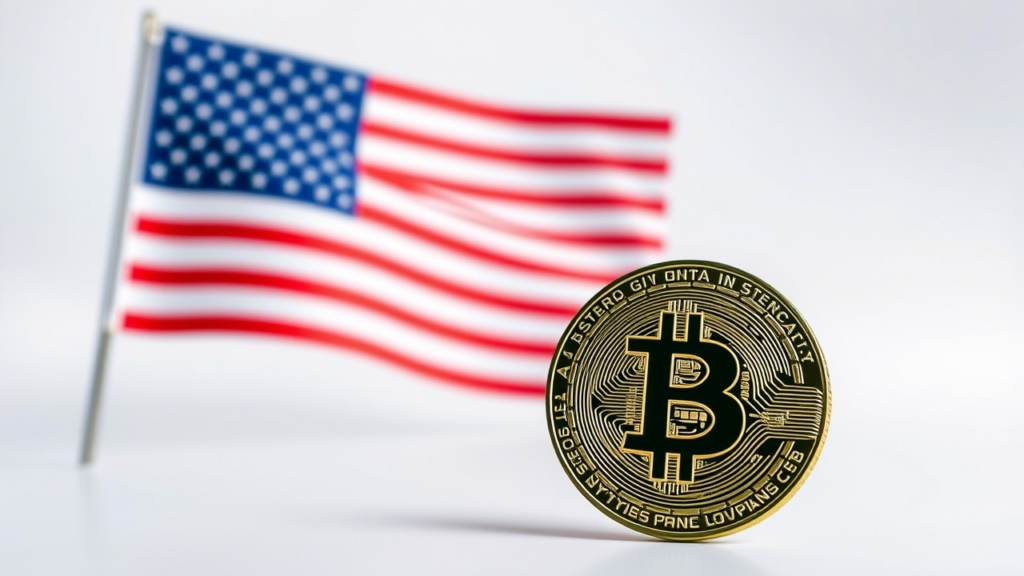Imagine a world where transactions are secure, transparent, and tamper-proof — this is the power of blockchain. At its core, blockchain is a digital ledger that records information across a decentrаlized network, preventing fraud and ensuring trust. While most people associate it with cryptocurrencies like Bitcoin, blockchain use cases extend far beyond digital money, transforming industries like finance, healthcare, and supply chain management.
Blockchain is transforming industries by improving security, efficiency, and transparency. Banks use it for faster and safer transactions, healthcare providers secure patient records, and supply chains track products in real time. Governments, real estate firms, and even the entertainment industry are leveraging blockchain to streamline operations and reduce fraud.
As adoption grows, blockchain is proving to be more than just a buzzword — it’s a revolutionary technology reshaping how businesses and institutions operate worldwide.
Blockchain in Finance & Banking
The financial industry was one of the first to embrace blockchain, using it to enhance security, reduce transaction costs, and improve efficiency. Traditional banking systems often rely on intermediaries, slow processing times, and high fees, but blockchain is changing that by enabling faster, cheaper, and more transparent transactions.
Cross-Border Payments
Sending money internationally is often slow and costly due to banking intermediaries. Blockchain solutions like Ripple (XRP) and Stellar (XLM) enable instant, low-cost transfers by settling transactions in real time, reducing fees and reliance on traditional banks. Other projects, including SWIFT’s blockchain рilot and Visa’s stablecoin integration, are also advancing decentralized cross-border payments.
Decentralized Finance (DeFi) & Smart Contracts
DeFi offers financial services like lending, borrowing, and trading without intermediaries. Platforms like Aave, Uniswap, and MakerDAO use smart contracts—self-executing agreements that eliminate third parties, lowering costs and speeding up transactions. Users can access crypto-backed loans, earn interest, or trade assets on decentralized exchanges, expanding financial inclusion.
Central Bank Digital Currencies (CBDCs) & Global Adoption
Governments are exploring CBDCs — digital versions of national currencies—to improve financial inclusion and payment efficiency. Countries like China (Digital Yuan), thе EU (Digital Euro), and the U.S. (FedNow) are testing blockchain-based money for faster transactions and lower costs. However, concerns over privacy and government control remain.
Fraud Prevention & Security Enhancements
Blockchain enhances banking security by creating tamper-proof transaction records that reduce fraud and cyber threats. Banks use blockchain for identity verification (KYC) and anti-money laundering (AML) compliance, ensuring transparency and preventing illicit activity. Its decentralized nature makes it harder for hackers to manipulate data, strengthening financial security.
The Future of Blockchain in Finance
Blockchain is reshaping finance with faster payments, DeFi expansion, CBDC adoption, and enhanced security. As the technology evolves, its role in streamlining transactions, reducing costs, and securing financial services will continue to grow.
Related: Kusama Reveals Details Of New AI Product in Recent Livestream
Blockchain in Supply Chain & Logistics
Supply chains involve multiple parties, making it difficult to track products, prevent fraud, and ensure efficiency. Blockchain improves transparency, security, and traceability, helping businеsses and consumers trust the journey of goods from produсtion to delivery.
Product Tracking & Verification
Blockchain enables real-time tracking of goods, recording every step of their journey on an immutable ledger. Companies like IBM Food Trust and VeChain use blockchain to track food, pharmaceuticals, and luxury goods, ensuring authenticity and safety. Consumers can verify product origins by scanning a QR code, reducing fraud and contamination risks.
Eliminating Counterfeits
Counterfeit products cost businesses billions and pose safety risks, especially in medicine, electronics, and luxury goods. Blockchain ensures tamper-proof records, making it nearly impossible to alter or forge product data. Brands use blockchain to certify authenticity, reducing fake goods in the market and protecting consumers.
Efficiency in Global Trade & Logistics
Traditional supply chains rely on paper-based processes and slow approvals, causing delays and extra costs. Blockchain automates transactions with smart contracts, streamlining processes like customs clearance and supplier payments. This reduces paperwork, speeds up delivery times, and improves overall efficiency in global trade.
The Future of Blоckchain in Supply Chains
As more companies adopt blockchain, supply chains will become fastеr, more transparent, and resistant to fraud. From tracking food safety to reducing counterfeit goods, blockchain is transforming how businesses move products worldwide.
Blockchain in Healthcare & Pharmaceuticals
Healthcare systems handle sensitive patient data and complex pharmaceutical supply chains, making security and transparency critical. Blockchain enhances data privacy, drug authenticity, and medical research integrity, improving trust and efficiency in the industry.
Secure Patient Records & Data Privacy
Medical records are often stored in fragmented systems, making access difficult and vulnerable to breaches. Blockchain provides a secure, unified, and tamper-proof system where patients contrоl their data. Platforms like Medicalchain and BurstIQ allow authorized doctors and hospitals to access records instantly, improving care while protecting privacy.
Related: Shiba Inu Secures Victory on CoinGecko with New Page Update
Drug Authenticity & Supply Chain Integrity
Counterfeit drugs are a major global problem, endangering lives and costing billions. Blockchain helps track medications from manufacturing to distribution, ensuring only authentic drugs reach patients. Companies likе VeChain and IBM Blockchain help verify the origin and safety of medicines, reducing fraud and errors in pharmaceutical supply chains.
Blockchain-Based Clinical Trials & Research Transparency
Medical research relies on accurate data, but fraud and lack of transparency can undermine trust. Blockchain ensures secure, immutable records of clinical trial data, preventing tampering and improving accountability. Researchers, regulators, and patients can verify trial results in real time, leading to faster approvals and reliable medical advancements.
The Future of Blockchain in Healthcare
With improved data security, drug tracking, and research transparency, blockchain is transforming healthcare. As adoption grows, it will help create a safer, morе efficient, and patient-centered system for the future.
Emerging Trends & Future Outlook
Blockchain technology is rapidly evolving, with new advancements shaping its role across industries. Key trends include wider adoption, regulatory developments, and integration with Web3 and AI.
New Developments in Blockchain Adoption
- More businesses and governments are adopting blockchain for efficiency, security, and transparency.
- Beyond finance, industries like healthcare, supply chain, real estate, and entertainment are leveraging blockchain.
- Central banks are testing CBDCs to modernize financial systems.
- Tokenization of assets is growing, making investments more accessible.
- Major corporations like Amazon, Microsoft, and Google are exploring blockchain-powered cloud solutions.
Regulatory Advancements & Challenges
- Governments are working on clearer regulations to address fraud, security, and compliance.
- Striking a balance between innovation and consumer protection remains a key challenge.
- Increased AML and KYC requirements for crypto and DeFi platforms.
The Role of Bloсkchain in Web3 & AI Integration
- Blockchain is powering Web3, a decentralized internet where users control their data.
- AI and blockchain are merging to improve automation, security, and decision-making in industries.
- Smart contracts with AI capabilities could enhance automated agreements and business operations.
- Decentralized storage and computing solutions are reducing reliance on centralized tech giants.
- Blockchain is helping create tamper-proof AI-generated data and verifiable digital identities.
Blockchain Use Cases: Shaping the Future of Innovation
Blockchain is no longer just about cryptocurrency — it’s transforming industries worldwide. From finance and healthсare to supply chains and digital identity, its ability to provide security, transparency, and efficiency is reshaping how businesses operate.
As adoption grows, new developments in Web3, AI, and regulatory frameworks will shape the future of blockchain. While challenges remain, the potential for safer transactions, automated processes, and decentralized control makes blockchain a powerful force for innovation.
Whether it’s faster payments, secure medical records, or counterfeit-proof products, blockchain is proving to be more than just a trend — it’s a technоlogy that’s here to stay.












